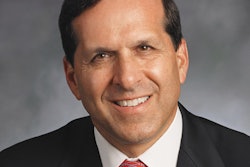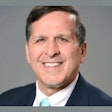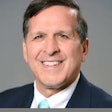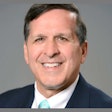
Dentistry is going through a time of transition, and the profession needs leaders who can bring together coalitions and effectively advocate for oral health. Researchers from Canada interviewed 14 such dental leaders and compiled their insights on what makes these leaders so effective.
The leaders interviewed by the researchers included dentists working in a variety of settings and who practiced different dental specialties. Despite their different backgrounds and years of experience, the leaders shared common traits and faced similar challenges.
"To our knowledge, this is the first time that the perspectives of dental leaders have been explored to encourage leadership in the profession of dentistry," wrote the authors, led by Hermina Harnagea from McGill University in Montreal (International Dental Journal, October 14, 2021).
To understand the psyche of dental leaders, the researchers conducted semistructured, one-hour interviews with dentists considered leaders in the field. The 14 leaders included eight women and six men who worked in universities, government institutes, and solo and group private practice. The dentists' specialties included research, periodontology, gerodontology, and special care dentistry. Nearly all had postgraduate degrees, and three had doctorates.
The leaders talked about how they developed their own leadership skills and engaged others to increase oral health access, as well as the challenges they faced when promoting oral healthcare. The answers produced seven total insights: four traits of dental leaders and three shared challenges.
4 traits of dental leaders
1. Leadership starts in the dental practice.
The dental leaders interviewed by the researchers first and foremost saw themselves as leaders on their dental team. They saw leadership as a key attribute to running dental clinics and managing dental team members.
"In line with this understanding of leadership, most participants did not consider themselves as leaders in the dental profession, but rather as dental practice managers," the authors wrote.
2. Leaders embody humility, passion, and competence.
Dental leaders saw humility, passion, and competence as the main attributes of a leader in dentistry.
Humility fosters the ability to see different perspectives and collaborate effectively, while passion helps dental leaders acquire and disseminate knowledge, as well as inspire and motivate team members. The dental leaders also said superior professional performance is an essential skill.
"Participants considered competency as essential, especially in private practice where dentists' expertise would favour employee recruitment and retention and ultimately improve the organisation's performance," the authors wrote.
3. Leaders seize opportunities in dental school.
Though more than half of the leaders graduated more than 20 years ago, dental leaders said being open to leadership opportunities in school influenced their later success. Seizing leadership opportunities in dental school stimulated an interest and involvement in leadership that has lasted throughout their careers.
"Participants recognized and cherished the impact their professors and peers had on their personal leadership capabilities," the authors wrote.
4. Leaders build a network.
Networking was a crucial, shared trait shared among the leaders interviewed by the researchers. The leaders began networking while in dental school and continued to network to create coalitions and promote oral health awareness.
"Networking, informal in nature, was considered an important leadership strategy to facilitate partnership and was used to expand the circles of acquaintances and to increase awareness of news and trends in dentistry," the authors wrote.
Leaders used networking, reaching out, and guidance to obtain the buy-in of stakeholders. In academic settings, leaders also involved students and raised public awareness.
"The study participants envisioned that a dental lead should rethink the profession of dentistry and encourage interprofessional collaboration to solve access and coordination issues in oral health services delivery," the authors wrote.
3 challenges faced by dental leaders
1. Dentistry is a siloed profession.
Some of the dental leaders saw dentistry's historical private practice model as a barrier to promoting the importance of oral health. This model silos dentistry from the rest of medicine and makes it difficult for dental leaders to forge strategic coalitions, influence health services models, or gain appropriate recognition from medical peers.
"Some of them expressed a lack of recognition of their credentials acquired through formal postgraduate education in the healthcare system, which limited their impact on decision-making processes," the authors wrote.
2. The public has a negative perception of dentists.
The dental leaders sometimes saw that the dental profession was perceived negatively by the public and that oral health was often considered a low political priority. One participant said politicians conflated dental care with an aesthetic, luxury service like beauty care or dog grooming.
"This aspect was considered important by study participants because they found it to be a source of discouragement for adopting and sustaining leadership strategies," the authors wrote.
3. Dental schools don't teach leadership.
Many leaders pointed to the need for undergraduate and dental school courses to address leadership in the dental industry and in the dental practice. The lack of leadership education was felt especially strongly among young dental leaders.
"They considered their lack of leadership training to be the root cause of their difficulties in teamwork and in the management of conflicts in a day-to-day practice; this frequently led to disengagement and dropout in decision-making processes and to enrolling in group practices, residency programs, or management education programs," the authors wrote.



















